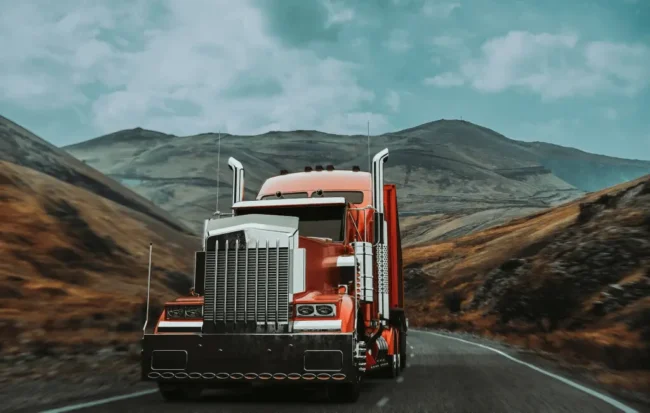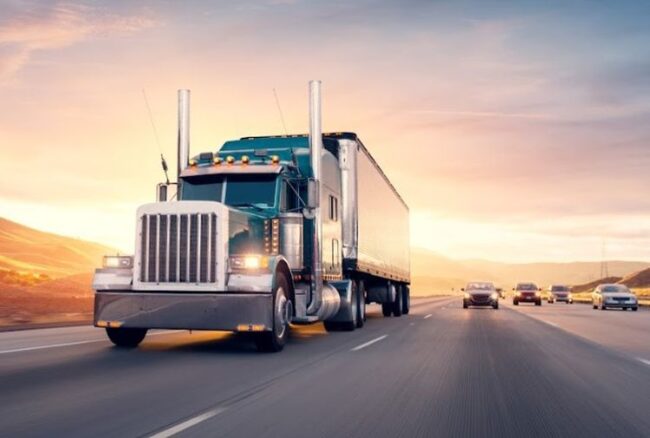The trucking community plays an integral role in the US economy. Reports state that truck drivers are responsible for 70% of the United States freight. Just about any industry you can think of—construction, healthcare, everyday utilities, hospitality, etc.—relies on the goods that are transported by trucks. There are even studies that say that 80% of the communities depend on trucks for medicines, food, clothes, raw materials, and other essentials.
Considering how important a truck is, you’d expect the drivers to be the most responsible people on earth. Sadly, statistics say that the previous statement is wrong. The Insurance Institute for Highway Safety (IIHS) states that 4,714 people died in large truck accidents in 2021. What makes this fact worse is that only 16% of those deaths were truck occupants. The remaining fatalities were occupants of other vehicles, motorcyclists, pedestrians, and bicyclists.
Truck accidents usually result in serious losses, both physical and property-related. Only the lucky ones get away with minor injuries. The unlucky ones have to cope with serious life-altering injuries or, in the worst cases, death. So, what do you do when you have sustained injuries or lost a loved one due to an 18-wheeler accident? After reaching out for medical attention, you must look for an 18-wheeler accident lawyer in your area.
Lawyering up is important. Not just to receive compensation but also to have some form of assistance when dealing with insurance companies. A lawyer will also help prove the seriousness of your injuries. This paves the way for just compensation.
Yes, a lawyer’s role is crucial, but only after you’ve been involved in an injury. The only thing that will minimize your chances of an accident is following safe driving practices and gaining knowledge. The more you learn about trucks, their driving schedules, and what their drivers go through, the better. This article aims to achieve that. It lists 5 reasons why 18-wheelers are dangerous vehicles on the road. They are,
- Weight, Size, and Length
- Blind Spots
- Stopping Distance
- Maneuverability
- Cargo
We’ll discuss each of them in detail.
Weight, Size, and Length

First things first, let’s discuss some numbers. The average semi-truck is 8 ½ feet wide and 13 ½ feet tall. As for length, the average is 72 feet, but it may vary depending on the cargo. Why are these numbers important? To get a better perspective, let’s look at the dimensions of the average car. They measure 5–6 feet in height, 5.8 feet wide, and 14.7 feet in length. Although the numbers for cars may go up for larger cars, the difference is still noticeable.
Not to forget the truck’s weight. The average truck has a gross weight of 80,000 pounds. Now imagine an 18-wheeler doing 70 mph on rural interstate highways. A simple rear-end collision will have devastating effects on the occupants of the car.
These monstrous dimensions play a crucial role in the outcome of an 18-wheeler accident. This is why life-altering injuries like spinal cord injuries and head and brain injuries are pretty common in truck accidents.
Blind Spots
This is related to the first point we discussed. The larger the vehicle, the greater its blind spot. But what is a blind spot?
A blind spot is the area around the truck that the driver cannot see when operating it.
When talking about blind spots in a truck, a driver’s view is limited due to the size of the truck. This means that vehicles or other elements in the truck’s blind spot are hidden from the driver. This is one of the reasons why it is recommended to avoid driving behind a truck.
If you have to drive alongside a truck, keep the following tips in mind.
- Check whether you can see the driver in the truck’s side mirror. If you can’t see them, they can’t see you
- Keep a close eye on the truck’s signals and brake lights
- Signal early if you plan to pass a truck
- Avoid aggressive driving
- Be patient
- Avoid tailgating
- Don’t slow down when overtaking
- Give room for trucks to make a turn
Stopping Distance

In physics, momentum is defined as the property of a moving body that decides the time needed to bring it to rest. You may ask how this is related to trucks.
Stopping an 18-wheeler is difficult, given its weight and power. This means that even if the truck driver applies the brakes due to an unexpected event, the momentum of the truck will keep pushing it forward.
The situation gets worse in traffic, where the truck has to stop and move at regular intervals. Since the distance an 18-wheeler takes to stop is much higher than the average car, it is recommended to maintain a safe distance at all times. Failure to do so usually leads to rear-end collisions.
Maneuverability
The larger the truck, the harder it is to control. This statement is particularly true in the case of 18-wheelers. The speed and weight of the truck aside, the weight of the truck’s cargo should be taken into consideration as well.
The size of the truck, especially an 18-wheeler, demands that it be driven by a skilled and experienced driver. But even skilled drivers who follow safety guidelines don’t stand a chance against the laws of nature.
If a reckless motorist swerves into the truck’s path or an unwary animal strays onto the road, the driver will act accordingly to avoid the danger. But the act of avoiding motorists or animals may end up disastrous for the truck’s occupants and others on the road. The truck risks losing control, ramming into other vehicles, or running off the road.
Cargo

The cargo that an 18-wheeler carries is seldom small. With huge cargo comes huge responsibilities. Trucks carrying longer trailers need more room on the road when making turns. They may need to move between lanes to successfully make a turn without damaging the vehicle and the cargo or putting other motorists in harm’s way.
Inexperienced drivers or drivers who are in a hurry may fail to take the necessary precautions to make the turn. This, in turn, leads to accidents.
Poorly secured cargo is another instance where the truck’s cargo may cause accidents. Cargo that isn’t properly secured tends to move around when the truck is in motion. This causes stability issues in the truck, causing it to fall over to one side or sway from side to side on the road.
Conclusion
Motorists should take extra care when they’re sharing the road with an 18-wheeler. The size of the truck makes it a dangerous vehicle to be riding along with.
An 18-wheeler is safe only in the hands of an experienced driver. Accidents happen when drivers resort to speeding or other aggressive methods to complete their trips on time. The same goes for drivers who are too tired to drive.
18-wheeler accidents often lead to catastrophic results. If you or a loved one has suffered injuries or loss of life in an 18-wheeler accident, consult a truck accident attorney today. They will assist you in your journey to receive just compensation for your injuries.
